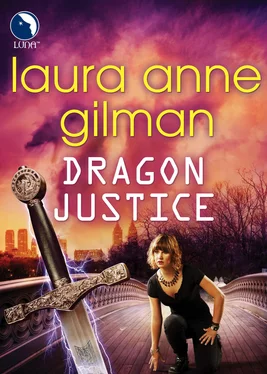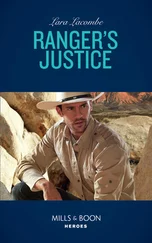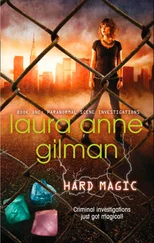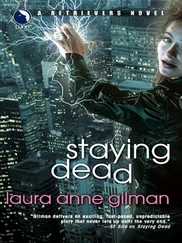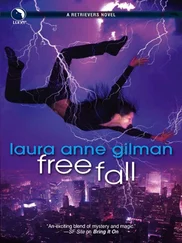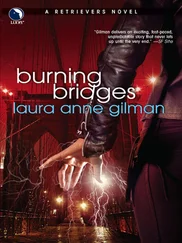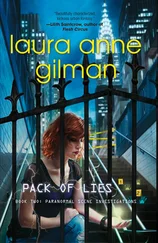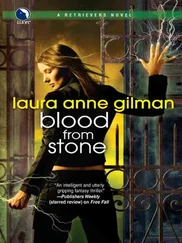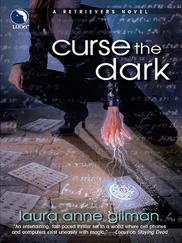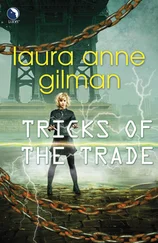We skirted the Reservoir and got off a little while after 102nd street, vaguely on the east side of the Park. Rorani waited, and I belatedly dug into my bag for cash to pay the cabbie. He sneered at my request for a receipt.
“This way,” she said, as he pedaled away. We walked past the Lasker Pool and off the roadway, down a worn path, and into surprisingly deep woods.
This part of the Park had been designed to mimic a natural forest, and once within it, you could not see—or hear—any hint of the city around us, not even the tallest skyscrapers. I was pretty sure that a slender beech winked at me as we passed, but I didn’t have time to stop and say hello—and I might have imagined it, anyway.
We walked down the deer path, single file, until Rorani stopped, waiting for me to see whatever it was she wanted me to see.
There was a decline, sloping gradually into a little flat-bottomed valley, with another higher, rocky rise on the other side. The floor was covered in grass and ground cover, the trees midheight and leafy, and—then the scene shifted, the way some paintings do when you stare at them too long.
I saw the bedrolls first. They were tucked under a clump of thick-trunked trees, concealed under tarps painted to mimic the ground, but the shapes were wrong, jumping out at me like they were splashed with bright orange paint. The storage container was harder to find; they’d found one the same gray as the rocks and cluttered it up so that the lines resembled a small boulder. I was impressed.
Once I saw that, the bodies came into focus. Three skinny forms in dark hoodies and jeans, curled up against each other like kittens, and another higher up on a rock, his or her legs hanging over the side, reading a book. It was a quiet, peaceful scene, and I couldn’t see a thing about it that would have worried Rorani, other than the fact that all four were young enough to be living at home, not out here on their own. But that was a human concern, not a fatae one.
The campsite, now that I was aware of it, looked well established. Without using magic to hide it, I was amazed they’d been able to keep it from being discovered even a week, much less a month or more. I guess if nobody’s looking, it’s easier to hide.
Had anyone been looking for these girls, before us? The cops had…but in a city this size, kids go missing at such a rate it must be impossible to keep up, even on a purely Null basis. Add in the fatae, and the risk of being dusted or—well, nobody had been eaten in years. That we knew about, anyway.
“How many are there?” I spoke softly, although I was pretty sure that they couldn’t hear us from up here.
“I’m not sure,” she said, equally as quiet. “They come and go, and I cannot stay to watch them as I might. I have seen as many as a dozen gathered. A dozen, and their leader.” She paused, and her hand touched my shoulder, the fingers folding around my skin. “Their leader. She…worries me.”
Ah. I had thought Rorani would not mind teenagers gathering peacefully among her trees; there was something else going on. “An adult?”
“Yes. A Null. And yet there is magic there. She holds them in sway. A glamour, save she has none. She speaks, and they gather around. She points, and they scatter.”
I chewed on my lower lip, listening. What Rorani was describing was a charismatic, like Stosser. Take a charismatic, Talent or Null, add a bunch of under-twenty-somethings, and put them out here, with no other distractions? You have a cult.
Most cult leaders were male, from what I’d ever read, but most doesn’t ever mean all. A females-only cult? If they were religious, I’d lay money on Dianic—or Artemic—or any of the other mythological interpretations. No stag to hunt here, though.
“What do you—” I started to ask, when something caught Rorani’s attention. “Oh, dear,” she said, in a tone of voice that put every nerve I had on edge. There was “oh, dear, that’s too bad,” and then there’s “oh, dear, this is very bad,” and hers was the latter.
We weren’t alone. Out of the stillness, a dozen creatures flowed over the hill behind the campsite. They were long and lean and shimmered a pale silver like sunlight on water, and I had no idea what the hell I was looking at except I was pretty sure they weren’t bringing milk and cookies. As we watched, the first one started picking a careful, silent route down the hill.
The kids below had no idea they were about to have company.
“Landvættir,” Rorani said. Her fingers moved restlessly, her lovely face grave, but she remained still by my side, merely watching. “They claimed this area before the humans came. I tried to warn them, but they did not hear me.”
I wasn’t sure if she had tried to warn the humans or the breed, but it didn’t matter. Dryads were negotiators, not fighters; she wasn’t about to get involved in what was about to happen. I’m not much of a fighter, either. Every time I’m near a fight—any kind, even a scuffle—my heart starts to pound and my stomach hurts. But I couldn’t stand by and watch someone get hurt, either.
Any faint hope that the fatae meant no harm was dashed when—the moment they hit ground—they attacked. The humans were caught off guard, but rallied in a way that suggested they’d been taught at least some fighting moves: they rolled away from the first attackers, then went back-to-back in pairs, grabbing whatever was nearest to hand as weapons.
My move into the clearing was more hasty than graceful, but a few bruises and dirt on my clothes were the least of my worries. The fatae had sharp claws and blunted snouts that still looked like they could do some harm, and the four humans had what looked like pocket knives, a baseball bat, and a large rock. That wasn’t going to do it, even if they had the first idea where the fatae were vulnerable.
I had no idea, either—I’d never encountered these lan-whatevers before. But I had a trick these Nulls didn’t; one that any fatae would recognize and respect.
I hoped.
Reaching up with my current-sense—the thing that makes your hairs stand on end and your skin vibrate when there’s an electrical storm overhead—I grabbed the first bit of wild current I could find and dragged it down into my core. I’m normally not much for wild-sourcing, but in this place and this instance, it seemed the right thing to do.
The new current sizzled hot and fierce, and I didn’t give it time to settle into my core before I was pulling it up and out again. Thin, sharp blue lines sparked along my skin, like electric veins, and crackled and popped in the air around my hands.
Most of what we did these days was careful, regulated, and always, always thought out in advance. I had absolutely no idea what I was going to do right then, except it involved keeping anyone—human or fatae—from getting killed.
One of the girls saw me, and I could tell from her body language that she wasn’t sure if I was friend or foe. Trying to reassure her, without catching the fataes’ attention, I nearly fell over one of the camouflaged lumps and kicked aside something small and shiny. A metal tent peg. I grabbed it instinctively, and the moment the cool metal hit my palm, I had a plan.
I ignored the individual scuffles, dodged around a fatae who tried to grab at me, and made it to the center of the scrum. Holding the spike up over my head, I gathered all of that wild current and sent it into the metal, wrapping it tight with hot blue threads of my own core-current, forcing it to my will.
“Sit down,” I yelled and put all my annoyance, my frustration, my worry, and my sheer irritation at wasting time with this crap into those two words.
The magic echoed like a thunderclap under the tree branches, and I swear I heard some of the granite behind me calve off and splinter in response. The effect on the fatae was gratifying. They weren’t built to actually sit down, but they dropped to the ground anyway, bellies low and clawed hands down. The humans went down like someone had cut their strings, in at least one instance falling over her erstwhile opponent.
Читать дальше
